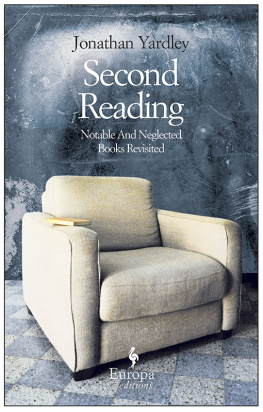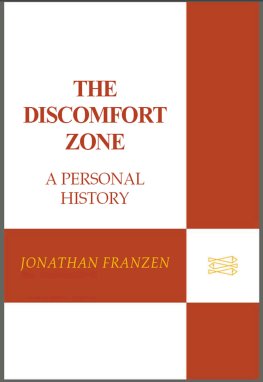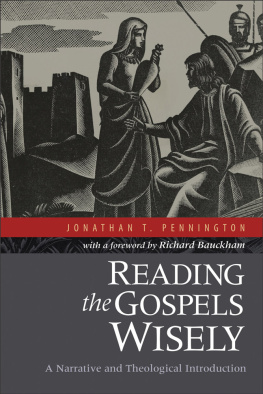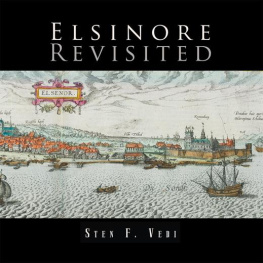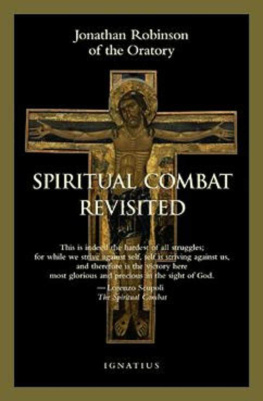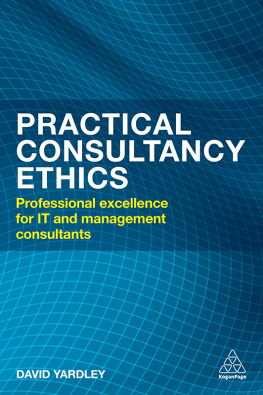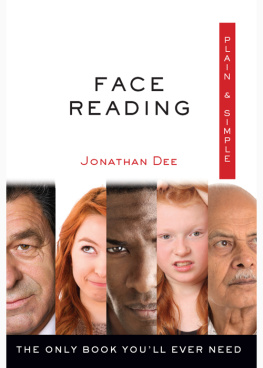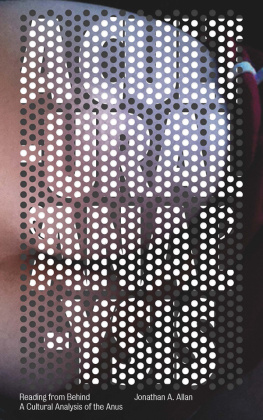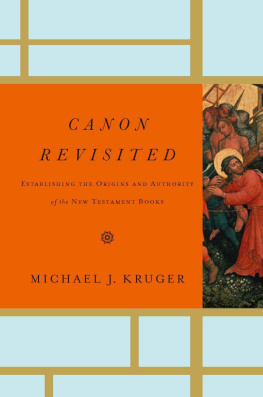Jonathan Yardley - Second Reading: Notable and Neglected Books Revisited
Here you can read online Jonathan Yardley - Second Reading: Notable and Neglected Books Revisited full text of the book (entire story) in english for free. Download pdf and epub, get meaning, cover and reviews about this ebook. year: 2012, publisher: Europa, genre: Detective and thriller. Description of the work, (preface) as well as reviews are available. Best literature library LitArk.com created for fans of good reading and offers a wide selection of genres:
Romance novel
Science fiction
Adventure
Detective
Science
History
Home and family
Prose
Art
Politics
Computer
Non-fiction
Religion
Business
Children
Humor
Choose a favorite category and find really read worthwhile books. Enjoy immersion in the world of imagination, feel the emotions of the characters or learn something new for yourself, make an fascinating discovery.
- Book:Second Reading: Notable and Neglected Books Revisited
- Author:
- Publisher:Europa
- Genre:
- Year:2012
- Rating:3 / 5
- Favourites:Add to favourites
- Your mark:
- 60
- 1
- 2
- 3
- 4
- 5
Second Reading: Notable and Neglected Books Revisited: summary, description and annotation
We offer to read an annotation, description, summary or preface (depends on what the author of the book "Second Reading: Notable and Neglected Books Revisited" wrote himself). If you haven't found the necessary information about the book — write in the comments, we will try to find it.
Second Reading: Notable and Neglected Books Revisited — read online for free the complete book (whole text) full work
Below is the text of the book, divided by pages. System saving the place of the last page read, allows you to conveniently read the book "Second Reading: Notable and Neglected Books Revisited" online for free, without having to search again every time where you left off. Put a bookmark, and you can go to the page where you finished reading at any time.
Font size:
Interval:
Bookmark:
For Marisi
who saved my life
The five dozen pieces herein collected were published in the Washington Post between March 2003 and January 2010. They appeared under the same title as this book and were always accompanied by this description: An occasional series in which the Posts book critic reconsiders notable and/or neglected books from the past. Ultimately the series ran to ninety-eight books covered in ninety-seven essays; a list of the thirty-seven pieces not included in this book can be found at its end, as well as a link for reading them on-line.
Writing the column was utter pleasure for me, but that pleasure, like the column itself, came as a complete surprise. In the fall of 2002 a column I had written for the Post for more than two decades was yanked away from me for reasons that were never satisfactorily explained. I was bitter and angry, all the more so since I was expected to replace the column with an equal amount of work, the precise nature of which was left unspecified. Then, several months later, the inspiration for Second Reading came to me while walking home after a stimulating lunch with Deborah Heard, the new editor of the Style section. I e-mailed Deb as soon as I got there, and she immediately gave the idea her enthusiastic approval.
It didnt take long for me to realize how much fun it was to reach back into my past readingas youll see, the word fun appears frequently in these piecesor to discover how much pleasure it gave many of the Posts readers to be offered discussions of (mostly) worthy older books. The fixation of journalists on the new and the trendy is a forgivable occupational hazard, but it neglects the interests of readers who want something more substantial than the latest Flavor of the Day. My own tastes certainly are not everybodys tastes, but the steady, heavy volume of incoming e-mail convinced me that I had stumbled onto something that readers wanted. This was reconfirmed when I learned that book clubs around the Posts circulation area had latched onto Second Reading as a guide to their own selections.
I also came to realize that all unwittingly I was writing what amounted to the autobiography of a lifelong reader. No one ever told me what books had to be covered in the series. It was left entirely up to me, so I followed my memory and, in many cases, my heart. You will find herein books I read (or had read to me by my parents) when I was a boy, among them Washington Irvings tales of the Catskill Mountains and C.S. Foresters Horatio Hornblower novels, as well as books and writers I came upon during my long career as a professional reviewer, among them Anita Brookner and Gabriel Garca Mrquez.
My tastes, in the generous words of the blogger Robert Birnbaum, tend to the idiosyncratic and wide-ranging, but they are rooted in certain constants. I am white, Anglo-Saxon, and Protestant, though the last more in name than in practice. My father spent most of his adult life as a private-school headmaster, my mother as his loyal (if occasionally vexed) helpmeet, so I grew up in a little world where serving the children of the rich was an unceasing undertaking. When I was eleven years old I was sent off for what turned out to be six years as a scholarship student at prep schools for boys most of whom were far more privileged than I. All this left me with powerful feelings about wealth, privilege, and social class, feelings that are reflected here in the pieces about John P. Marquand, Anita Brookner, F. Scott Fitzgerald and Louis Auchincloss. It also left me with a great love for the novel of manners, a love reflected in those pieces as well as several others.
I have been an ardent, constant reader since the day I was old enough to read, but I do not consider myself a literary personfirst and foremost I am a journalistand I am not ashamed to find merit in booksRebecca, for example, or Mr. Blandings Builds His Dream House, or The Long Seasonsuch as the literati scorn. Above all else I love and value the art of storytelling, now sneered at in certain quarters; I especially admire it as practiced by masters as diverse as Elizabeth Bowen, Margaret Leech, and Peter Taylor. I cherish many difficult but rewarding writershence William Faulkner and Garca Mrquezbut have absolutely no taste for mere wordplay or literary games; I like puzzles in crosswords but not in novels. I savor the irony that Ulysses, the sine qua non of the literati but a book I simply cannot read, was admitted to these United States by my great-uncle, Federal District Judge John Woolsey. Had there been room for James Joyce in Second Reading, it would have been for Dubliners, not for Ulysses or, God knows, Finnegans Wake.
In the seven years of writing Second Reading the terrific word idiosyncratic never once popped into my head, but I did want each piece to come as a bit of a surprise to my readers and thus placed a good deal of importance on unpredictability and variety in making my selections. For the same reason I have chosen to present these sixty pieces in the order of publication.
Inevitably, in a collection of pieces such as these, there is a bit of repetition. In a few pieces I cite a books protagonist as one of the great characters in American fiction, and in many pieces I lament the neglect into which the writer and/or his book have fallen. I considered eliminating these recurrences, but decided that to do so would take something important away from the pieces. I hope you will bear with me in this, just as I hope some of these pieces will lead you to books that will enrich your life as much as they have enriched mine.
* * *
I am deeply grateful to Kent Carroll, the publisher of Europa Editions, for allowing these Second Readings to be published by his extraordinary firm, and for giving me the opportunity to work with him after many years of friendship. At the Washington Post, as mentioned above, Deb Heard played a central role in getting the series into print, and she was a strong supporter of it right up to her departure from the paper (she was one among scores who took early buyouts) at the end of 2008. Rose Jacobius was the series invaluable editor until she left, also at the end of 2008, at which point Rachel Hartigan Shea took over as my guardian angel. My thanks to all three of them.
Most of all, my thanks, like my heart, go out to my wife, Marie Arana. We are an office romancewe met in the early 1990s at the Washington Post Book Worldand books are central to our life together. Herself the author of several brilliant books as well as, until the infamous Buyout of 2008, a fulltime editor, she always found time to read these pieces before I filed them and to catch me in the errors to which I am occasionally susceptible. Every one of these pieces was written with her foremost in mind, and dedicating this collection of them to her is only a first step toward paying my incalculable debt to her.
Washington, D.C., April 2010
by John P. Marquand
I t is just about impossible for me to imagine beginning a series of essays about books of yesterdaybooks I remember with affection and admiration but have not read in many years, books I would like to encourage others to discoverwith anything but a novel by John Phillips Marquand. His are not the best books Ive ever read, but they are among the books I love most, and the neglect into which they have fallen is a literary outrage.
I first read Marquand half a century ago, when I was thirteen years old. It was my good fortune to be the child of parents who read incessantly and never once said that a book was too old for me, so when they talked with enthusiasm about their own reading, I tended to try it for myself. Nothing gave them greater pleasure than Marquand. He had, as they had, one foot on the inside of the blue-blooded WASP world and one foot on the outside; they shared his fondness for many of its people and his longing for the wealth and privilege many of them enjoyed, but they also shared his keen awareness of WASP smugness, insularity and complacency.
Next pageFont size:
Interval:
Bookmark:
Similar books «Second Reading: Notable and Neglected Books Revisited»
Look at similar books to Second Reading: Notable and Neglected Books Revisited. We have selected literature similar in name and meaning in the hope of providing readers with more options to find new, interesting, not yet read works.
Discussion, reviews of the book Second Reading: Notable and Neglected Books Revisited and just readers' own opinions. Leave your comments, write what you think about the work, its meaning or the main characters. Specify what exactly you liked and what you didn't like, and why you think so.

